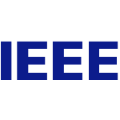Deep discriminative models (DDMs), such as deep regression forests, deep neural decision forests, have been extensively studied recently to solve problems like facial age estimation, head pose estimation, gaze estimation and so forth. Such problems are challenging in part because a large amount of effective training data without noise and bias is often not available. While some progress has been achieved through learning more discriminative features, or reweighting samples, we argue what is more desirable is to learn gradually to discriminate like human beings. Then, we resort to self-paced learning (SPL). But a natural question arises: can self-paced regime lead DDMs to achieve more robust and less biased solutions? A serious problem with SPL, which is firstly discussed by this work, is it tends to aggravate the bias of solutions, especially for obvious imbalanced data. To this end, this paper proposes a new self-paced paradigm for deep discriminative model, which distinguishes noisy and underrepresented examples according to the output likelihood and entropy associated with each example, and tackle the fundamental ranking problem in SPL from a new perspective: fairness. This paradigm is fundamental, and could be easily combined with a variety of DDMs. Extensive experiments on three computer vision tasks, such as facial age estimation, head pose estimation and gaze estimation, demonstrate the efficacy of our paradigm. To the best of our knowledge, our work is the first paper in the literature of SPL that considers ranking fairness for self-paced regime construction.
翻译:最近广泛研究了深层歧视模型(DDM),如深层回归森林、深神经决定森林等,以解决面部年龄估计、头部估计、眼部估计等问题。这些问题之所以具有挑战性,部分原因在于缺乏大量没有噪音和偏见的有效培训数据。虽然通过学习更具有歧视性特征或重新加权样本取得了一些进展,但我们认为,更可取的是逐步学习像人类一样的歧视。然后,我们诉诸自我进度学习(SPL ) 。但自然产生的一个问题是:自定制度能够引导DDDMs实现更稳健和不那么偏颇的解决方案?与SPL(SPL)有关的一个严重问题,这是这项工作首先讨论的一个严重问题,它往往会加剧解决方案的偏向性,特别是明显不平衡的数据。为此,本文件为深层次歧视模型提出了一个自定进度的新模式,根据产出可能性和与每个例子相关的温和速度学习。从一个新的角度处理SPL(SPL)中的基本排名问题:公平性。这一范式是最基本的,并且可以轻松地结合我们自我评估的自我定位,也就是对DDM的模型的演化。




